True Potato Seeds (TPS), Cuchipa Ismaynin, 100 seeds
$8.50
In stock
| True potato seed information and growing instructions |
Cuchipa Ismaynin (I’m not completely sure, but I think this is Quechua for “pig shit”) is a Peruvian heirloom potato. It is a diploid with strong dormancy. While it does form tubers under long days, it does so fairly slowly and yields tend to be low. It is a better producer in the fall and will do best where it can be grown into November. It has purple skin and partially purple flesh. Other than the difference in color, this variety and Chiquilla Pitiquiña are quite similar, although they were found not to be closely related in a study of their genetic markers.
Cuchipa Ismaynin was provided by the USDA Potato Introduction Station as PI 607491.
Culinary Traits
Cuchipa Ismaynin has floury flesh and moderately thick skin. I think the flavor is excellent. It is a good potato for roasting. It is probably less ideal for frying or mashing due to the smaller tuber size and deep eyes. When cooked, the white flesh becomes much more yellow and the purple flesh intensifies.
Agronomic Traits
Cuchipa Ismaynin produces modest yields, around a pound per plant, with most tubers smaller than three inches, but some occasionally growing to twice that size. Both yield and tubers are larger when grown later in the year. Stolons are short with the tubers clustering directly under the plant. This variety has very deep eyes and will grow best in a loose, more sandy soil. In clay soils, the tubers may prove challenging to clean. The trick with deep eyed tubers is to wash them as soon as they are harvested, before the soil dries to the tubers. Plants flower abundantly and set seed easily with a diploid pollinator. This variety has moderate late blight resistance. It survives bight very well here, but does form lesions that sporulate.
Fertility: MF3, FF9
True Seed (TPS)
TPS was collected 2018 to 2021 and was insect pollinated. It grew in a block with other high dormancy diploids. The results were actually a bit disappointing. The majority of the seedlings were short day types that only form tubers very late. It is certainly possible to get really cool varieties from this TPS, but you will have to sow a lot to find types that tuberize well in the summer. This seed is relatively slow to germinate, so give it some extra time. The seeds are small and produce small seedlings that grow slowly at first. Once they catch up though, they mature normally. Because of these challenges, I recommend this TPS only to people who have some experience.
Germination
2025: Moderate (30-50/100g), intermediate (12-18 days)
2024: Moderate (30-50/100g), intermediate (12-18 days)
2023: Moderate (30-50/100g), intermediate (12-18 days)
Only logged in customers who have purchased this product may leave a review.

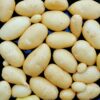
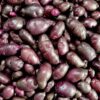
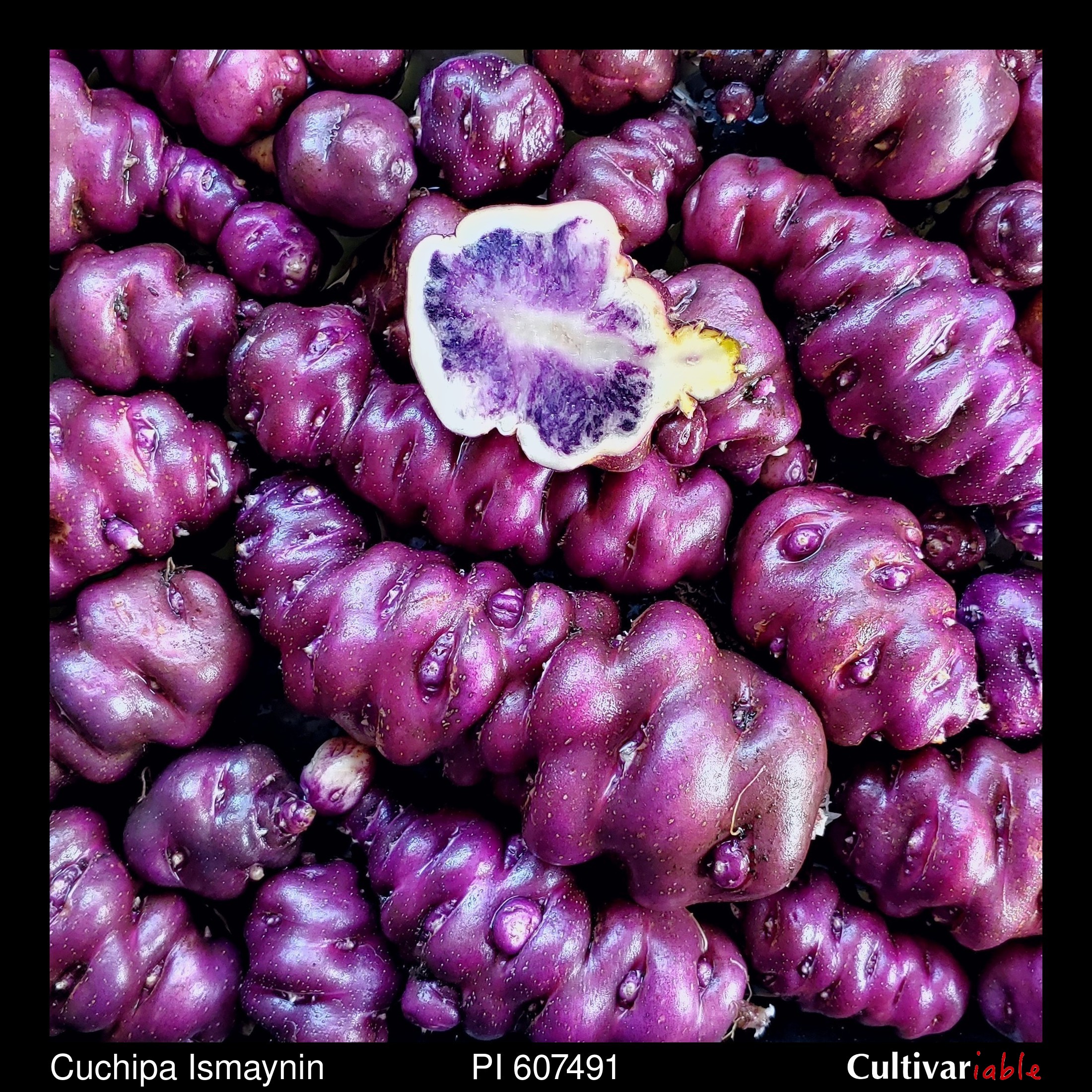
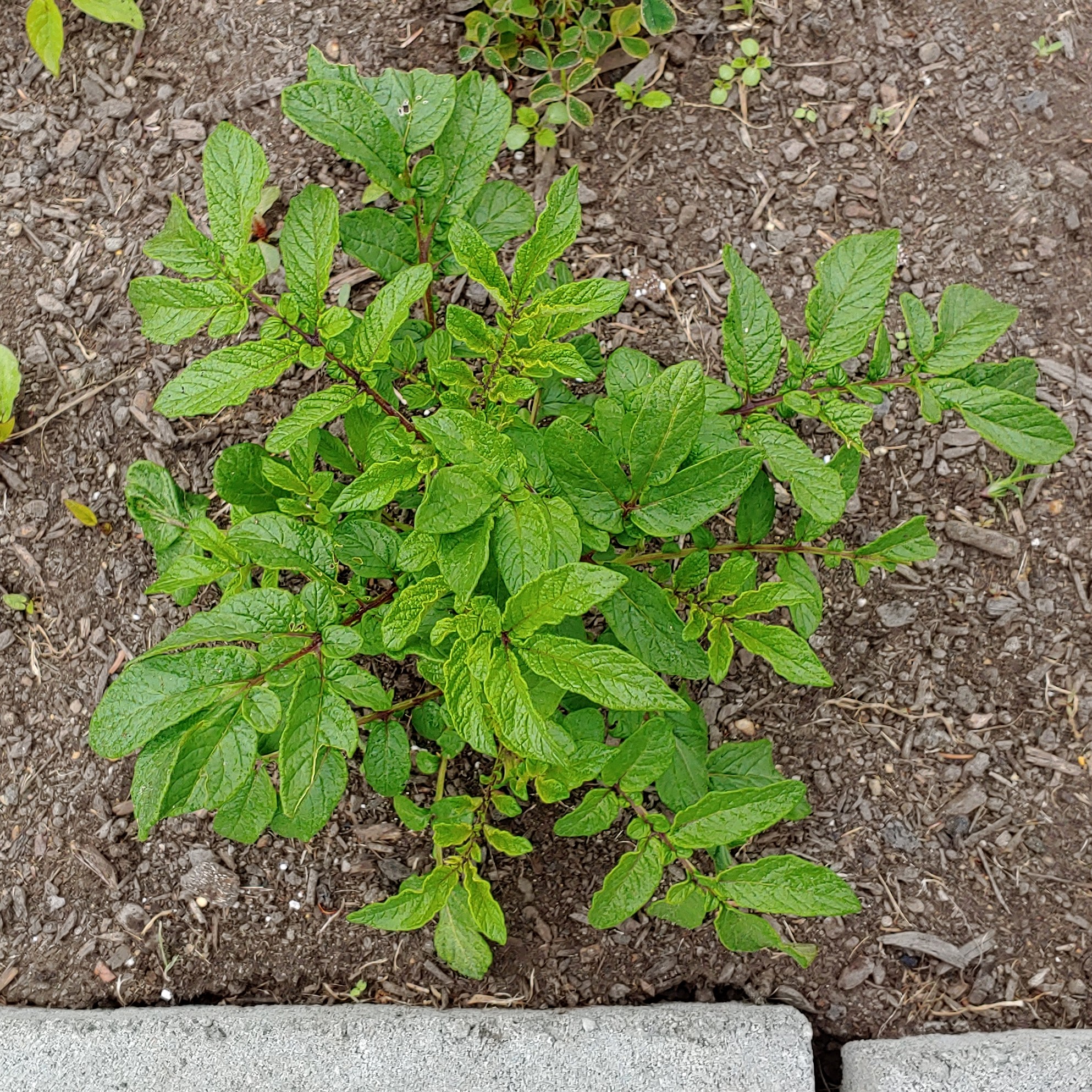
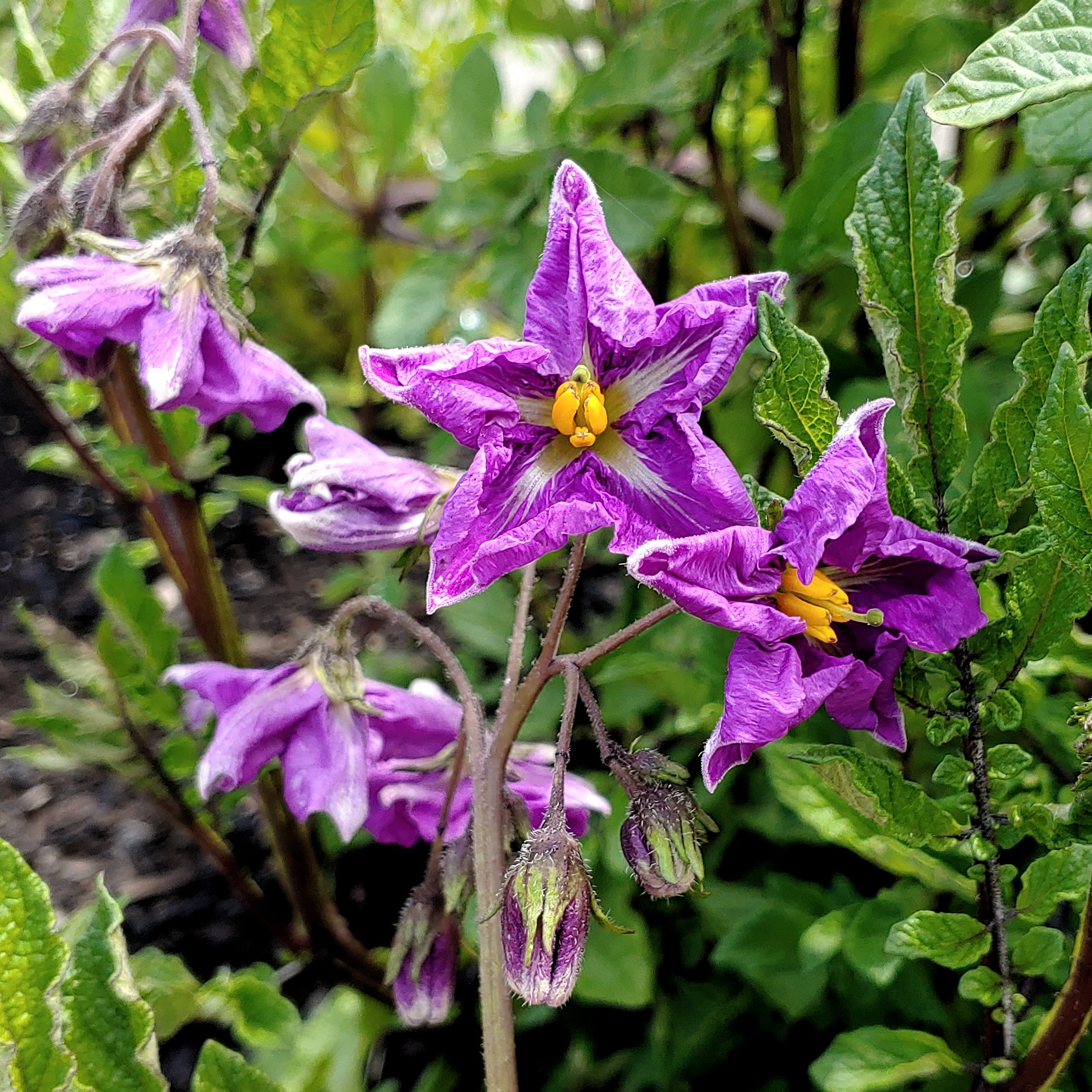
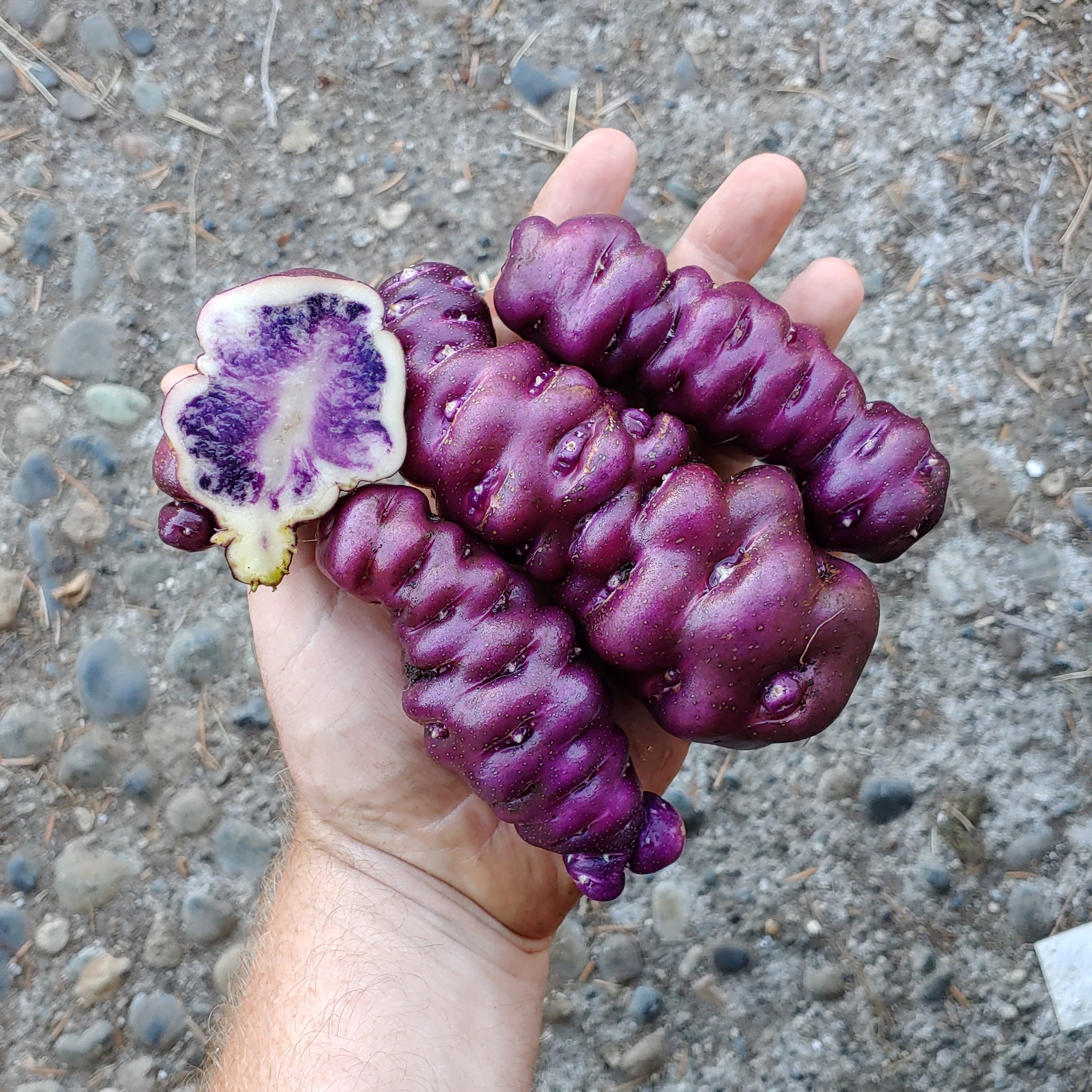
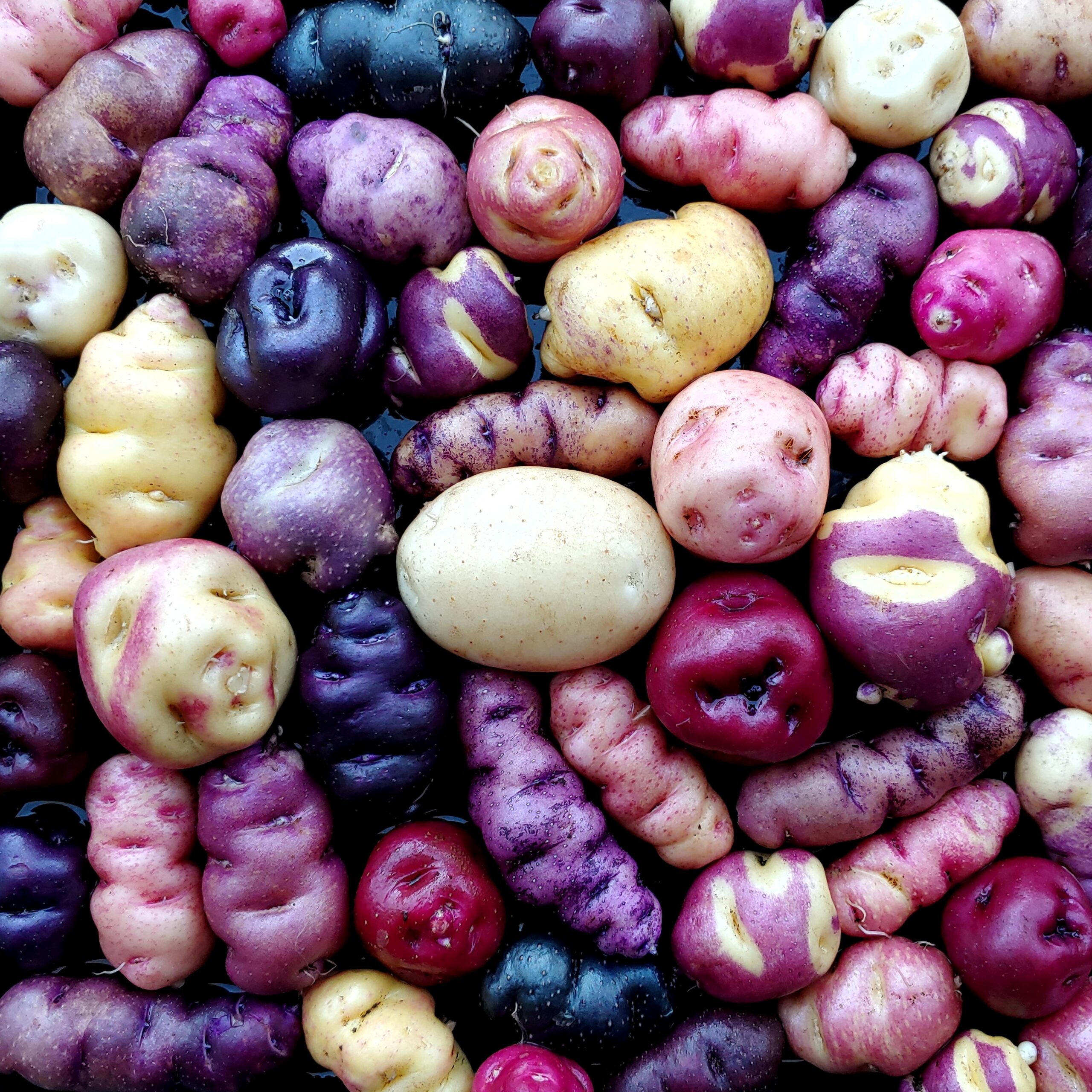
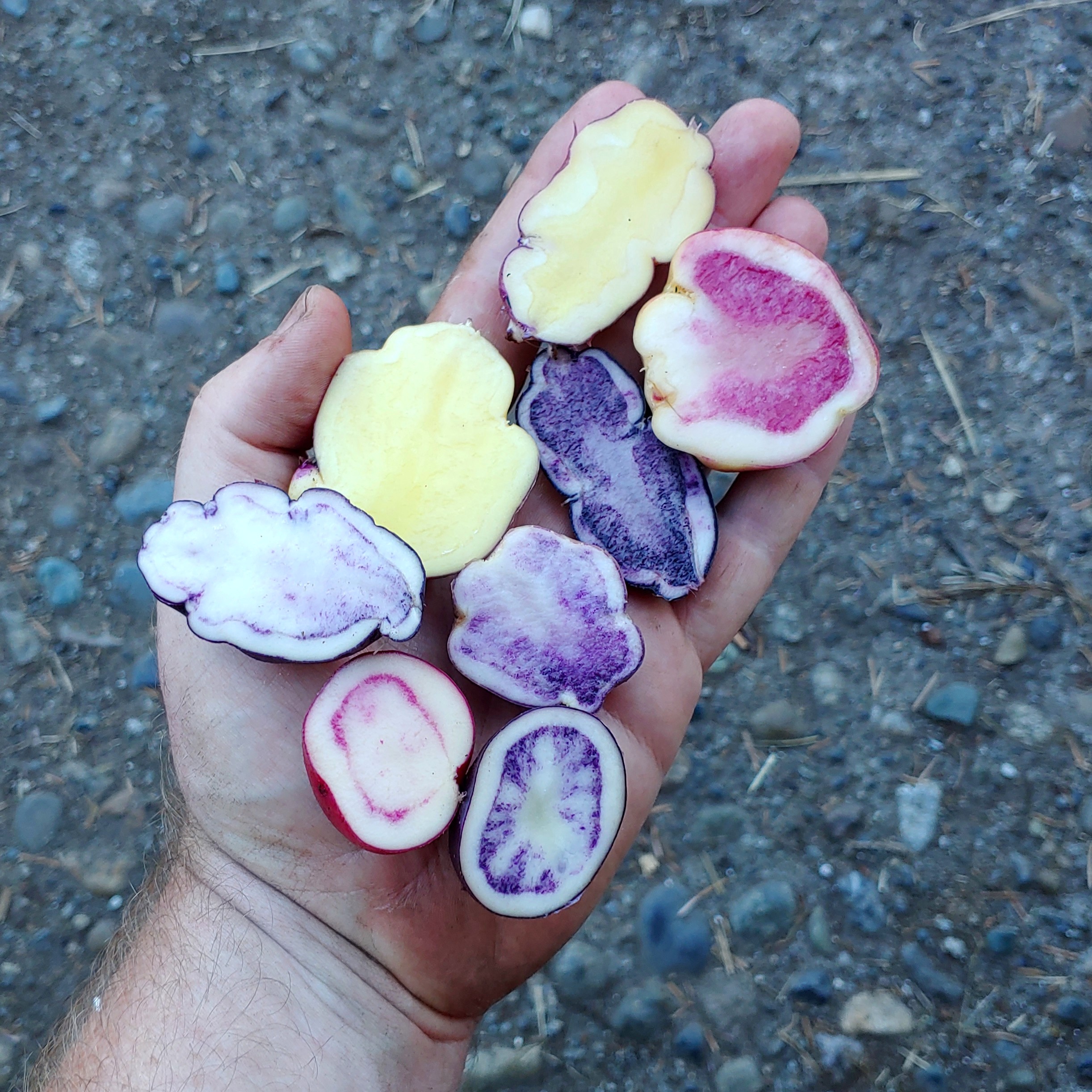
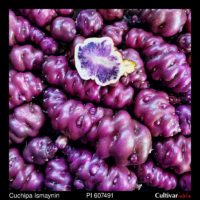
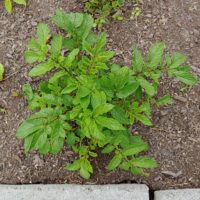
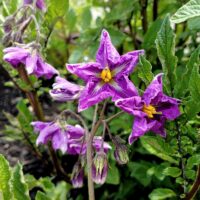
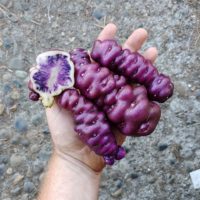
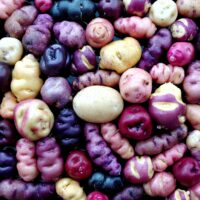
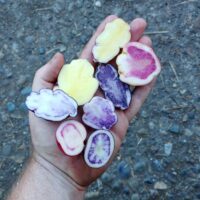
Reviews
There are no reviews yet.